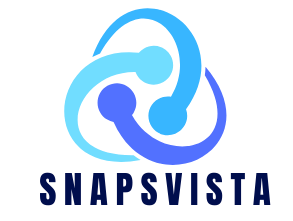Which is not Considered an Additional Cost Beyond Tuition for Higher Education: All You Need to Know
In the realm of higher education, tuition encompasses a wide array of costs essential to your academic journey. While tuition fees typically cover expenses such as instruction, access to facilities like libraries and laboratories, and academic support services, they do not include supplementary costs like textbooks, housing, meals, or personal expenses.
These additional expenditures are often a significant part of the overall cost of education, and students need to budget for them separately. It’s important to be financially prepared for these extra costs and explore potential opportunities for scholarships, grants, and financial aid to help alleviate the financial burden associated with pursuing a higher education degree. By understanding what is not included in tuition, you can make more informed financial decisions and ensure a smoother educational experience.
Tuition Fees: The Primary Expense
Tuition is the most well-known and significant cost associated with higher education. It covers the cost of instruction and is the primary expense of attending college or university. Tuition fees can vary significantly depending on the institution, the program of study, and whether the student is in-state or out-of-state.
Room and Board Costs
Apart from tuition, room and board expenses are also an integral part of the overall cost of higher education. This includes the cost of housing, whether living on-campus or off-campus, and the expenses related to meals and dining. These costs can differ based on the location and the choices made by the student.
Textbooks and Supplies
Textbooks and other study materials are another necessary expenditure for students. The cost of textbooks and supplies can add up quickly, especially for programs that require specialized materials. Students often need to budget for these academic essentials.
Transportation
Transportation is often an overlooked cost of higher education. Whether students commute or live on campus, they may need to cover transportation expenses. This includes costs associated with commuting to and from classes, as well as visiting home during breaks.

Personal Expenses
Personal expenses encompass various costs, such as clothing, toiletries, and entertainment. These are the everyday expenses that students incur while pursuing their education. It’s essential to account for these costs when creating a budget for higher education.
Health Insurance
Health insurance is a significant consideration for students. Many colleges and universities require students to have health insurance, either through the institution’s plan or proof of coverage. This is a cost that students and their families must factor in. Don’t Forget to Check Out Our Website: Snaps Vista
Extracurricular Activities
Participating in extracurricular activities can enrich the college experience. While these activities are not directly related to tuition, they can incur additional costs. These activities may include joining clubs, attending events, or traveling for competitions.
Technology and Equipment
In the digital age, having the necessary technology and equipment is crucial for academic success. Students may need to invest in laptops, software, and other tech-related items, which can be a significant expense.
Internships and Co-op Programs
Many students pursue internships and co-op programs to gain real-world experience. While these opportunities can be beneficial, they might not provide a salary, and students may need to cover living expenses during these periods.
Scholarships and Grants
Scholarships and grants are forms of financial aid that can help offset the costs of higher education. They are not considered additional expenses, as they reduce the overall financial burden on students.
Financial Aid
Financial aid, including federal and state grants and loans, can play a pivotal role in making higher education more affordable. Students should explore all available financial aid options.
Work-Study Programs
Work-study programs offer students the opportunity to work part-time jobs on campus to help cover their educational expenses. These earnings can be used to offset living and personal costs.
Hidden Costs
Apart from the more obvious costs, there are hidden costs that students may encounter. These could include fees for lab materials, printing, or attending special events. It’s essential to be prepared for unforeseen expenses.
Conclusion
In conclusion, higher education involves various costs beyond tuition. Room and board, textbooks, transportation, personal expenses, health insurance, extracurricular activities, technology, internships, and other factors contribute to the overall financial commitment. However, scholarships, grants, financial aid, and work-study programs can help alleviate some of these expenses. Students and their families should be well-informed and budget accordingly to make the most of their higher education experience.
FAQs
What are some common hidden costs in higher education?
Hidden costs in higher education can include lab fees, technology fees, printing and photocopying expenses, and fees for attending special events or extracurricular activities. It’s essential to be aware of these potential costs when planning your budget for college or university.
How can I find scholarships and grants to help with my education expenses?
To find scholarships and grants, you can start by checking with the financial aid office of your chosen college or university. Additionally, various online scholarship databases and organizations offer financial assistance to students based on academic achievements, talents, or specific criteria. It’s also a good idea to explore options at the state and federal levels.
Are there ways to save on textbook and supply costs in college?
Yes, there are several ways to save on textbook and supply costs. Consider buying used textbooks, renting them, or using e-books when possible. You can also check if your college’s library has copies of required textbooks. Additionally, consider forming study groups to share textbooks or supplies with your peers.
Is health insurance mandatory for all college students?
Health insurance requirements vary by college and university. Some institutions may require students to have health insurance coverage, while others offer school-sponsored plans. It’s crucial to check

